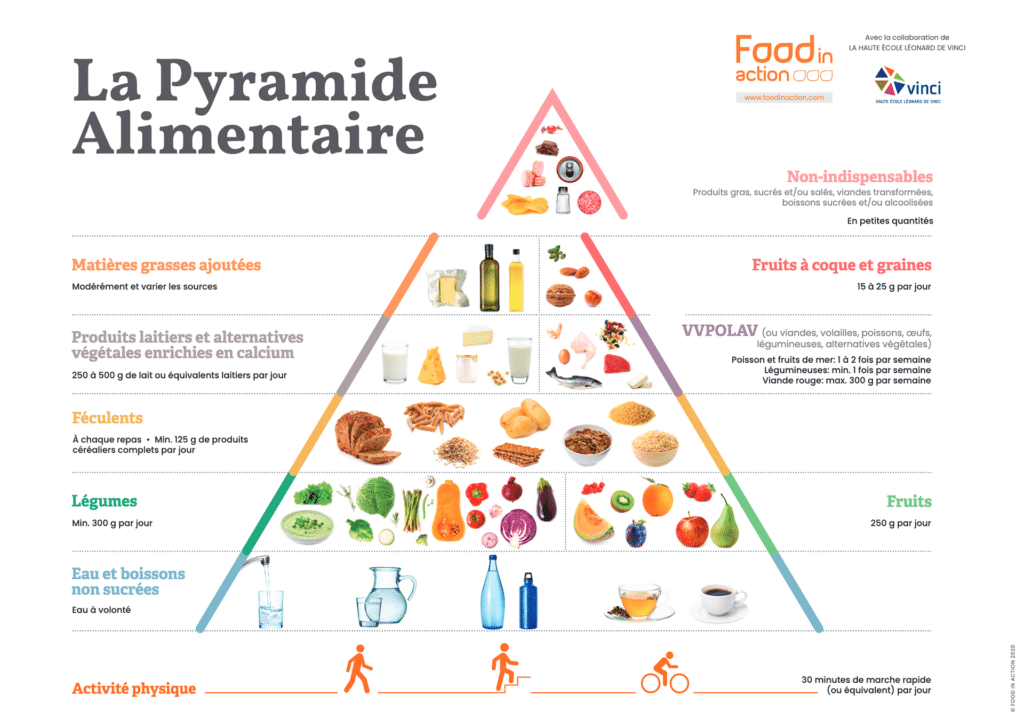
Type 2 diabetes: the role of food

Although genetics play an important role in the development of prediabetes and diabetes, other conditions accompany it. Among them, the lifestyle adopted by humans over recent decades has fuelled the explosion in diabetes cases.
Lack of physical activity and a diet too rich in sugar and fat lead to overweight and obesity. As a corollary, these two factors favor the onset of type 2 diabetes. That’s why doctors recommend taking action on lifestyle, with a few practical tips.
Type 2 diabetes, « the disease of the century »
Diabetes is the most widespread non-infectious disease in the world. To date, 532 million people have diabetes. If this rate continues, there will be more than 783 million diabetics on the planet by 2045. The increase in the number of cases occurred in the second half of the 20th century and coincided with changes in our lifestyles. The phenomenon of ‘junk food’, i.e. foods that are too rich in fat and sugar, is a major factor in the rise of diabetes in our society.
« 1 in 10 French people have diabetes »
– ceed-diabete.org : Les chiffres du diabète
Adopting a balanced approach to food rather than a strict « diet »
A focus on diet is a major part of the treatment of type 2 diabetes. For a long time, the medical world imposed a strict diet on people with diabetes. But studies have shown that the implementation of a strict diet has no health benefits in the long term. A person with type 2 diabetes, like a healthy person, needs a balanced diet.
Indeed, all food groups must be includedin each meal. Certain nutritional principles must therefore be learned and followed in order to reduce type 2 diabetes in the body.
The essential supply of nutrients in the body
Our bodies function on the daily intake of nutrients. Made up of proteins, fats and carbohydrates, these are assimilated in the body through their circulation in the blood. While all three groups are essential to our survival, the latter two require greater focus in cases of type 2 diabetes.
Carbohydrates
Carbohydrates are sugars and can be divided into two groups:
• Simple carbohydrates refer to natural sugars (fruit) and processed sugar products (pastries, soft drinks, desserts etc.
• Complex carbohydrates, which include starches, grains and legumes
Simple carbohydrates or sugars pass quickly through the blood and are converted into energy. High in fibre, complex carbohydrates stay in the body for longer and have a low glycaemic index. Opting for the intake of complex carbohydrates is a priority for treating type 2 diabetes.
Lipids
Lipids or fats also exist in several forms:
• Unsaturated fatty acids of plant origin or found in certain oily fish such as herrings, sardines and salmon
• Saturated fatty acids of animal origin (butter, cheese, meat and eggs)
Unsaturated fatty acids contain omega-3, which is good for preventing cardiovascular disease. In contrast, saturated fatty acids stimulate the development of cholesterol, a supply of fat that is harmful to the arteries.
Proteins
Protein does not affect blood sugar but can still help manage type 2 diabetes, through its appetite-suppressing effect, for example.
Eating protein has a satiating effect on the body. This helps to control appetite, reduce snacking between meals and eventually lose weight.

Eat balanced meals
Like everyone else, a person with type 2 diabetes should make sure that they eat a variety of foods in a balanced fashion. Eating slowly, taking the time to chew well, is also essential. All food groups should be included in each of the day’s three meals. Nevertheless, a diabetic must learn to choose foods according to their glycaemic index. Belowwe describe a balanced meal:
- Raw fruit or vegetables
- A portion of meat, fish or eggs
- A portion of starchy foods
- A portion of cooked vegetables
- A dairy product (animal or plant-based)
- A portion of fat high in omega-3 (oil or oleaginous plants)
- Water
* www.foodinaction.com : La Pyramide Alimentaire 2020: plus équilibrée et plus durable

Continue reading :
- What is diabetes?
- Diabetes summarised in three diagrams
- How is diabetes diagnosed?
- Who is affected and what are the health risks?
- What are the symptoms of type 2 diabetes?
- What is the difference between diabetes and prediabetes?
- The role of physical activity in combatting diabetes
- Managing stress to avoid type 2 diabetes
Our latest publications
Want to learn more about topics related to blood sugar management?
Here are our most recent blog posts!


Contact information
51 Avenue F. Lobbedez
CS 60946
62033 Arras Cedex
France
Tel : +33 (0)3 21 23 80 00
Fax : +33 (0)3 21 23 80 01




